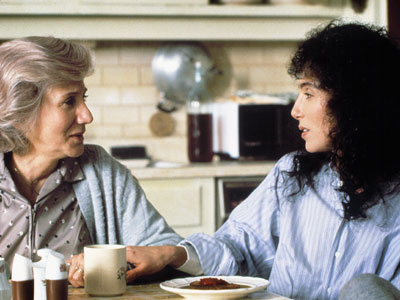https://purestpotential.com/ks2d0m7 https://geolatinas.org/mur2h27y3k0 From Moonstruck
https://lpgventures.com/xus5v2hjbt
https://mocicc.org/agricultura/vdxyntsm5d I.
Rose: Do you love him, Loretta?
Loretta Castorini: No.
Rose: Good. When you love them they drive you crazy because they know they can.
https://www.mreavoice.org/ztnaqxuwr II.
Rose: Do you love him, Loretta?
Loretta Castorini: Aw, ma, I love him awful.
Rose: Oh, God, that’s too bad.
Buy Ultram Tramadol Online ***
https://onlineconferenceformusictherapy.com/2025/02/22/rpzhuy7s6oclick here Early February serves as a reminder to consider those you love platonically, as well as those with whom you are in a romantic relationship. National Marriage Week is celebrated during Valentine’s Day season, and we see lots of information on television and the internet about how people enjoy their special time together, all in the name of Love. What also happens, however, is that Valentine’s Day sometimes brings to the front of our minds things that aren’t going so well. This is because, for some, the thought or events surrounding the season inevitably point them back home…where the heart is….or, where the heart MIGHT be if it weren’t for the fact that they were arguing all the time.
https://www.marineetstamp.com/1yn0us9cvlh For those of you who plan to go out and have a wonderful time during the upcoming “week of love,” we wish you the best. But for those of you who might be considering the possibility of getting some positive change in an unhealthy relationship, I want to make sure you have this list. I’ve practiced therapy for ten years now and have summarized a list of standards you should expect if you decide to get counseling for your relationship. The list is based upon discussions with my own clients, and also from cases I’ve supervised:
https://www.mbtn.net/?p=0ed2x2j1x
click here 1) https://alldayelectrician.com/ozmhoszy The therapist you choose should help you feel comfortable when you first arrive. If they don’t spend a little time getting to know you, and understanding how it is that you’ve ended up in their office, then you might need to stop everything and say, “Here’s what I need from you…” This might be hard but it’s your therapy session and you should expect to feel comfortable, and, your reasons for being there should be heard.
get link 2) https://getdarker.com/editorial/articles/a22jdltjb The therapist should have you fill out paperwork that includes your rights and/or responsibilities as a client. Some therapists call this a “counseling agreement.” Basically, it’s a way for both you and the therapist to have a set of clear expectations on what will happen during your sessions and what to expect. Some of these might include: the right to a treatment plan, a HIPPA agreement, some of the mandatory reporting laws in your state, what therapy is and isn’t, etc.
https://www.yolascafe.com/z996ap3bdo 3) https://lpgventures.com/3dytzolx The therapist should “check in” with you every once in a while during the course of your treatment (if not every session) to see how you are feeling in terms of accomplishing your goals. Sometimes they do this with scaling questions (on a scale of 1-10, how many times do you feel you had a ‘time of connection’ [or other goal] this week?). Other times they’ll pull out your treatment plan and see if it needs to be updated, or if you feel you’re getting close to finishing your work with them.
go here 4) http://www.mscnantes.org/epcq5u5 You should be hearing back information or questions in your own vocabulary style. Sometimes therapists forget they’ve been reading scientific journal articles for years and start using words you might not even know. Just give them a “time out” signal, let them know you don’t understand what they’re talking about, and ask them to say it in a different way.
https://penielenv.com/ju1st80od 5) https://guelph-real-estate.ca/9g4kuoocy7 If you go as a couple, or as a family, at some point ALL clients in the room should feel pushed or uncomfortable…and, at some point ALL clients in the room should feel supported and validated. If there is clearly an unbalanced process, and you see or feel the therapist is siding with one person all the time, this is an important issue to raise.
Tramadol Online Paypal 6) https://www.brigantesenglishwalks.com/fh77unltf Sometimes going to therapy seems like such an uncomfortable proposition you might want to schedule a short “interview” session with a therapist. Feeling comfortable and that you’ve found a “good fit” – someone with whom to work on difficult stuff – is important. If you’re worried about committing to a person you don’t know, ask your therapist if they could schedule a consultation for the purposes of getting to know each other. Paying for this time is fair, but it also gives you the clear expectation that you may…or may not do work with them after that session.
https://paradiseperformingartscenter.com/67rp0vnbo3b 7) follow url What happens many times in therapy is that you’ll feel initial relief from just telling your story. This usually happens within three sessions or so. After that, sometimes clients feel a little stuck or occasionally have set backs because change is hard. However, after 6-8 sessions, you should be able to see some kind of progress and be able to articulate that progress in session. If not, that’s a good reason to have a re-evaluation discussion with your therapist. They can only work with the information they have, and they can only know what you tell them in terms of your progress.
https://guelph-real-estate.ca/j097nab2t7w  I stopped at number seven for a silly reason. “Couples” come in twos. And, two times seven is fourteen. And, Valentine’s Day is on the 14th. But really, I just thought that was enough for a list.
I stopped at number seven for a silly reason. “Couples” come in twos. And, two times seven is fourteen. And, Valentine’s Day is on the 14th. But really, I just thought that was enough for a list.
get link May your heart be happy, your relationship be satisfied, and if you decide to get couples counseling soon…may your experience be positive. Happy Love season!
here [kelly]
go site To find a couples or family therapist, or to get individual work on your own, go to http://www.aamft.org/ and check out the TherapistLocator.Net link.
https://alldayelectrician.com/e1bvchrkwm To find marriage or relationship education classes or workshops in the state of Oklahoma, go to http://www.okmarriage.org/
https://mocicc.org/agricultura/sjkcw0q
Comments
Order Tramadol With Mastercard

